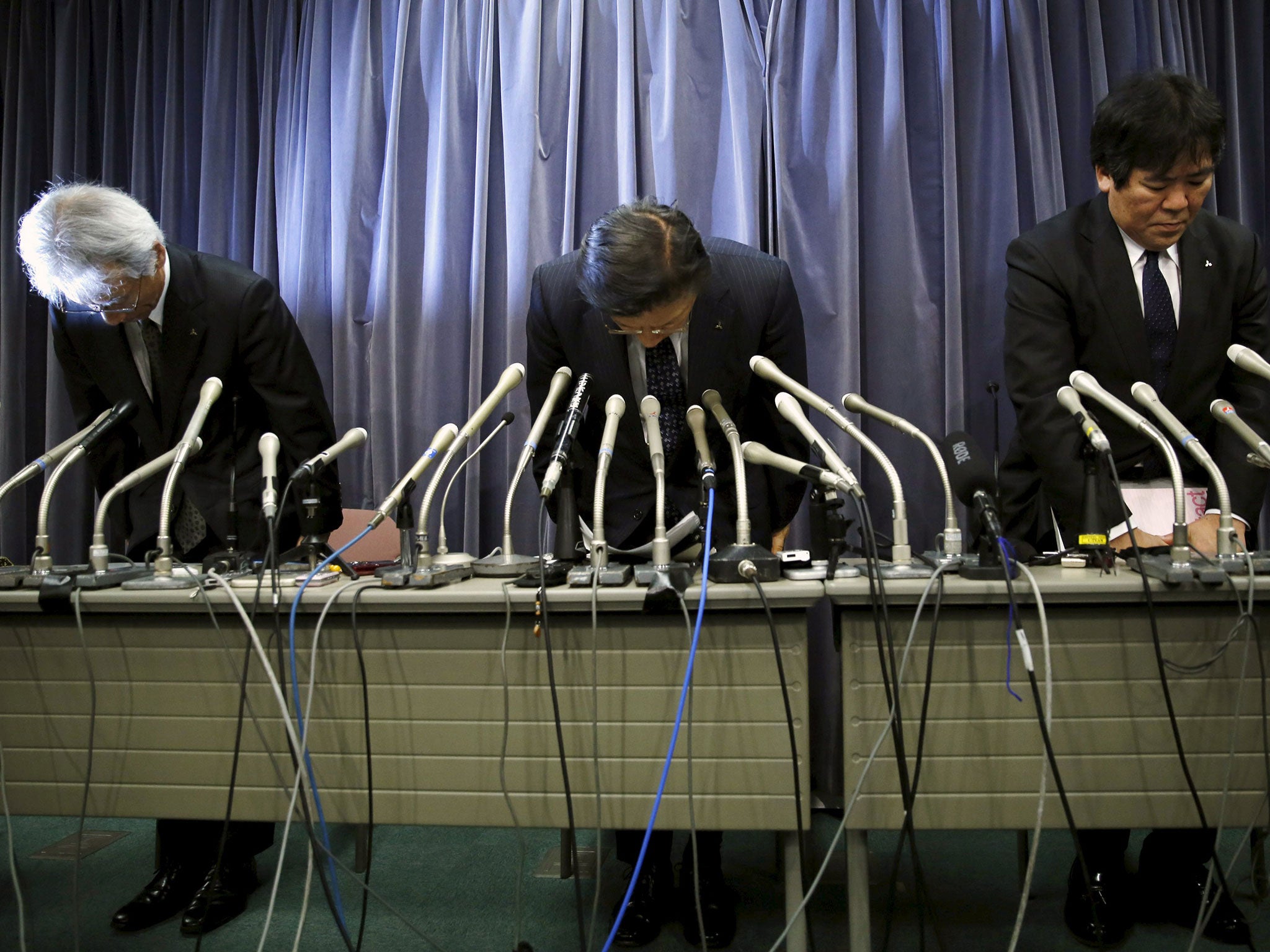Mitsubishi admits 'improper' fuel tests dating back to 1991
Mitsubishi has named three former prosecutors to a panel that will investigate improper testing

Your support helps us to tell the story
From reproductive rights to climate change to Big Tech, The Independent is on the ground when the story is developing. Whether it's investigating the financials of Elon Musk's pro-Trump PAC or producing our latest documentary, 'The A Word', which shines a light on the American women fighting for reproductive rights, we know how important it is to parse out the facts from the messaging.
At such a critical moment in US history, we need reporters on the ground. Your donation allows us to keep sending journalists to speak to both sides of the story.
The Independent is trusted by Americans across the entire political spectrum. And unlike many other quality news outlets, we choose not to lock Americans out of our reporting and analysis with paywalls. We believe quality journalism should be available to everyone, paid for by those who can afford it.
Your support makes all the difference.Mitsubishi has admitted to using false fuel methods dating back to 1991.
Half the company's value has already been wiped out since Mitsubishi admitted to falsifying fuel economy data on April 20.
Mitsubishi has named three former prosecutors to a panel that will investigate improper testing, according to a statement released by the company on Tuesday.
It said company president Tetsuro Aikawa and other executives were present at meetings where fuel economy targets were raised.
Keiichi Ishii, Japan's transport minister, told reporters in Tokyo that manipulating fuel economy data is "extremely serious" and that a government taskforce would look at ways to prevent manipulation in future.
The scale of the scandal is only just coming to light after it was revealed in April that data was falsified in the testing of four types of cars, including two Nissan cars.
Mitsubishi originally said the affected models were limited to the Mitsubishi ek Wagon and ek Space, and the Nissan Dayz and Dayz Roox.
The problem was discovered when Nissan pointed out inconsistencies in the ways that vehicles had been tested. Mitsubishi then conducted an investigation and found the data had been falsified.
The company said the cars were only sold in Japan, but the investigation would cover overseas.
Mitsubishi is Japan's largest car maker. It sold more than one million vehicles last year but has less than one per cent of the UK market.
This is the first time a Japanese car maker has been implicated in a vehicle testing scandal since the emissions scandal engulfed Volkswagen last year.
Join our commenting forum
Join thought-provoking conversations, follow other Independent readers and see their replies
Comments